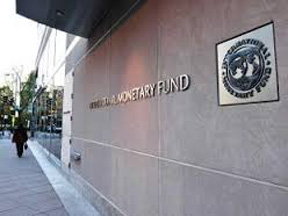 SINGAPORE: Financial inequality is highest in India and China among Asia Pacific countries despite the two being among the fastest growing economies, IMF has said.
SINGAPORE: Financial inequality is highest in India and China among Asia Pacific countries despite the two being among the fastest growing economies, IMF has said.
According to the International Monetary Fund, China and India have grown rapidly and reduced poverty sharply, however, this impressive economic performance has been accompanied by increasing levels of inequality.
“In the past, rapid growth in Asia came with equitable distribution of the gains. But more recently, while the fast-growing Asian economies have lifted millions out of poverty they have been unable to replicate the ‘growth with equity’ miracle,” the Fund said.
As per the report, China managed to increase middle class in urban areas, as did Thailand, while India and Indonesia struggled to lift sizeable portions of their populations toward higher income levels.
“In India, differences between rural and urban areas have increased, and have been accompanied by rising intra-urban inequality,” it said.
Many factors have been identified as key drivers of the inequality between rural and urban areas in China and India.
In China, rapid industrialization in particular regions and the concentration of foreign direct investment in coastal areas have led to substantial inequalities between coastal and interior regions. Other factors also include low educational attainment and low returns to education in rural areas.
On India, the report said inter provincial inequality is lower in India than in China, and rising inequality in India has been found to be primarily an urban phenomenon.
Moreover, the rural-urban income gap has increased, and higher rural inflation has been found to be a key driver of this. Educational attainment has also been identified as an important factor explaining rising inequality in India over the past two decades, the Fund said.
The two countries have introduced a number of policies to tackle the rising inequality.
China introduced the Minimum Livelihood Guarantee Scheme (Dibao) for social protection in the 1990s. Moreover, various social programs are aiming to expand social safety nets and provide support for the development of rural areas and western regions.
In India, the government introduced the Mahatma Gandhi National Rural Employment Guarantee Act to support rural livelihoods by providing at least 100 days of employment.
Programs to improve education include the National Education Scheme and Midday Meal Scheme.
The Fund lauded the JAM (Jan Dhan-Aadhaar-Mobile) initiative and said that “the JAM trinity initiative helped India in making substantial advances in financial inclusion. More recently, programs aiming for universal bank account coverage were launched”.–PTI





